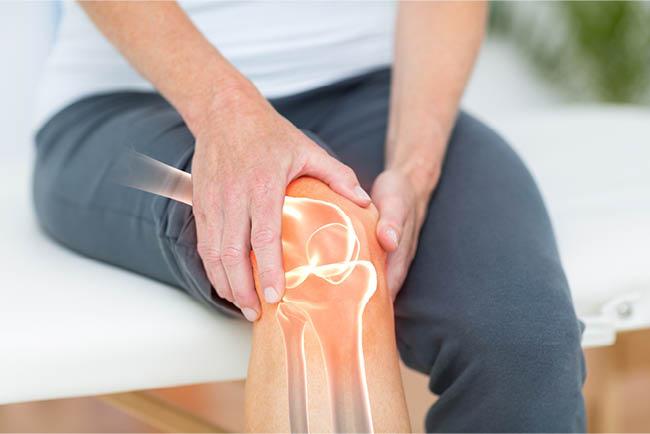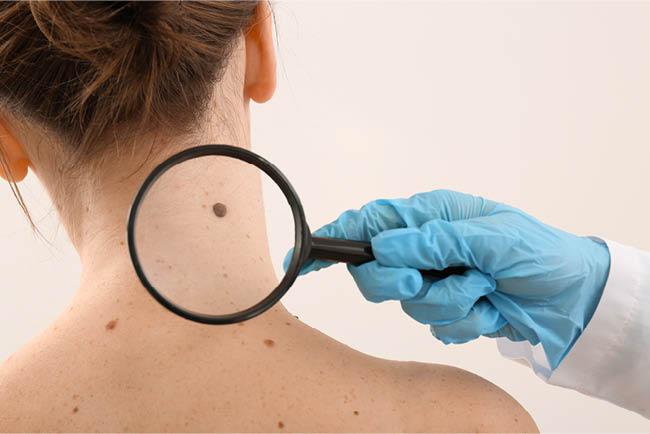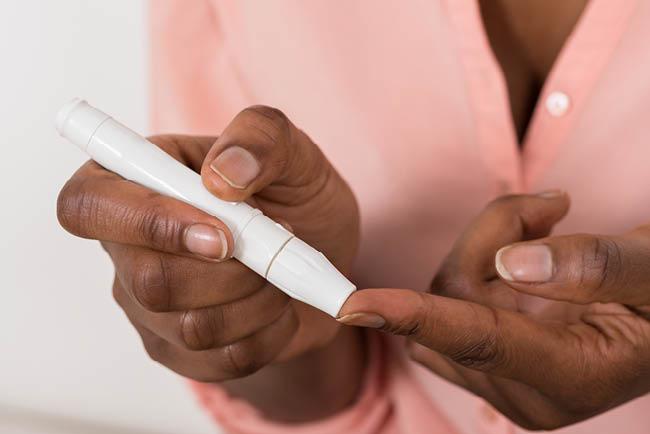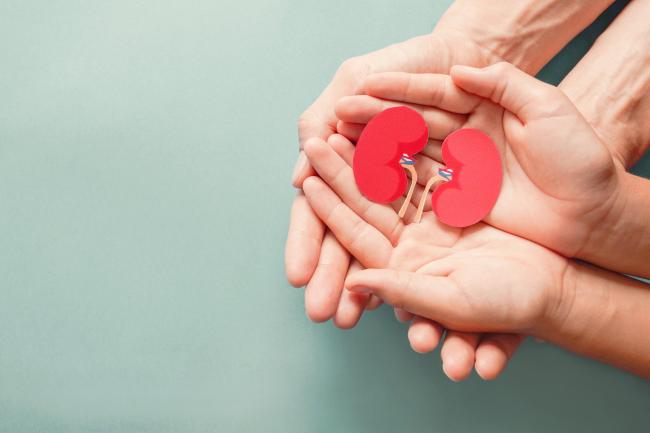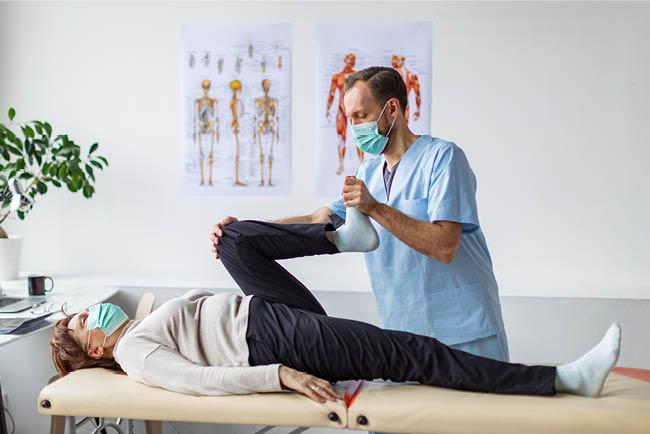Research studies are looking for volunteers just like you. Both healthy volunteers and participants with specific health conditions are needed to help answer important questions impacting the health of our friends and family. Join us to improve the health of others.
Study Categories
-
A Study about Movement Videos to Identify Developmental Abnormalities in Infants
Official Title
The 5000 Baby ProjectPurpose
The purpose of this study is to develop a screening tool to be used at birth to help lower the age at diagnosis of various developmental disorders.
Your infant will lie on their back in their diaper and have a video recorded of their movements. You will be given a medical history questionnaire to fill out during the recording. The visit typically lasts 15-20 minutes.
Could this study be right for you?
- Any infants from birth - 6 months (corrected age if applicable)
- Parent/legal guardian present and willing to provide informed consent
- Parent/Legal guardian is English Speaking
-
Treatment of Chronic Hepatitis C Virus During Pregnancy
Official Title
Safety, Tolerability, and Outcomes of Velpatasvir/SofosbuviR in Treatment of Chronic Hepatitis C Virus during Pregnancy (STORC), pregnant womanPurpose
This study involves evaluating a medication for hepatitis C in pregnant women.
If you are a pregnant woman with chronic hepatitis C and you join the study, you are consenting to enroll yourself and your baby after he/she is born.
Maternal participants will have 7 visits over approximately 7 months. Infant participants have four visits over approximately the first year of life.
Could this study be right for you?
(This is not a complete list)
- Must be 18 - 45 years of age
- Chronic HCV infection of at least 6 months
- Singleton pregnancy at 20 + 0 to 30 + 0 weeks’ gestation
- Documented negative Hepatitis B testing for current infection (negative HBsAg test) prior to enrollment
- If living with HIV, must be on antiretroviral therapy
Exclusion Criteria (not a complete list)
- Plans to relocate away from the study site area in the next 16 months and unable/unwilling to return for study visits
- History of cirrhosis
- Known fetal chromosomal abnormality prior to enrollment
Age Range
18 - 45 -
A Study to Learn More about Cellphone Use in Young Drivers
Official Title
Randomized Trial on Mobile Technology and Young Drivers' Cellphone UsePurpose
The purpose of this study is to find out if a cell phone app affects driving behavior among young drivers. This information may help us develop public health and traffic safety strategies for young drivers.
Could this study be right for you?
- 18-24 years old at the time of recruitment
- Must have ownership and exclusive access to a car
- Must have car insurance with at least state-minimum coverage
- Must live in the Greater Columbus Metropolitan Area
- Must drive at least 2 days a week on average
- Must have functioning iPhone or Android smartphone with an active phone service account (Ex: Verizon, AT&T, etc.)
- Must not have a physical car insurance monitoring device or app installed
- Must speak and read English
Age Range
18 - 24 -
Blood Pressure Health for Black/African American Women Caregivers
Official Title
Addressing the double jeopardy of stress and hypertension among African American female caregivers of persons living with Alzheimer’s disease and related dementias (R21)Purpose
The purpose of this study is to determine the feasibility of a group delivered intervention for stress and blood pressure in African American women caregivers.
Could this study be right for you?
- Diagnosis of HTN treated with an antihypertensive medication or risk of HTN that includes obesity and high cholesterol
- Age 40 and older
- A caregiver rating of the PLWD of 2 or greater on the Alzheimer’s Dementia-8 scale
- Caregiver provides unpaid care to a PLWD at least 10 hours per week or assists with at least one instrumental activity of daily living
- Self-identifies as Black/African American
- English speaking
- Access to a telecommunications device such as the internet via desktop, laptop/tablet, smartphone, or telephone
Age Range
40 and up -
Ohio Teen Driver Study
Official Title
Leveraging DRVN driver training app to reduce risky driving intentions in novice teen driversPurpose
The purpose of this study is to see if the bonus safety messages and the amount of app use predicts safe driving attitudes and behaviors at licensure. We are recruiting Ohio teens with learner's permits to use a free driver training app called DRVN.
Could this study be right for you?
- Must have learner's permit to drive in Ohio
Age Range
15 - 17 -
Vestibular Research Study
Official Title
Linking Vestibular Function, Balance, and FallsPurpose
The purpose of this study is to learn how information from different sensory systems, including the vestibular system (that portion of the inner ear which measures both motion and orientation of the head), are used by the brain to contribute to perceptions of tilt and motion, and balance control and posture.
Could this study be right for you?
You may be eligible to participate in the study if you:
- Are male or female, 18 years of age through 39 years of age
- Have NO history of a balance or vestibular disorder
If you are eligible and enroll in the study, you will:
- Complete an on-line Health Screen Questionnaire
- Complete other on-line surveys/questionnaires depending on information provided in the Health Screen Questionnaire
- Complete vestibular and balance testing depending on information provided in the Health Screen Questionnaire, which will be performed in a vestibular research laboratory at a mutually convenient time
Age Range
18 - 39 -
A Study about Eye Teaming, Focusing Ability and Quality of Life
Official Title
Development of Patient-Reported Outcome Measures for Children with Concussion-Related and Non-Concussion-Related Non-Strabismic Binocular Vision, Accommodative and Visual Tracking Problems: Phase 1Purpose
The purpose of this study is to assist in development of a new quality of life survey that can be used to learn more about how eye teaming, focusing ability and eye movement problems affect a child’s life.
Could this study be right for you?
- Children experiencing eye teaming, focusing, and eye movement problems (with recent concussion or non-concussed)
- Children with amblyopia (lazy eye) are excluded
Age Range
8 - 17 years -
A Randomized Trial to Evaluate Sequential vs Simultaneous Spectacles plus Patching for Amblyopia in Children 3 to <13 Years Old
Official Title
AMBLYOPIA TREATMENT STUDY (ATS22): A Randomized Trial to Evaluate Sequential vs Simultaneous Spectacles plus Patching for Amblyopia in Children 3 to <13 Years Old
Purpose
The purpose of this study is to evaluate if treating amblyopia (lazy eye) with glasses and patching at the same time improves vision as well as treating amblyopia first with glasses and then with patching, if needed.
Could this study be right for you?
- Visual acuity in the amblyopic eye between 20/40 and 20/200
- No previous treatment for amblyopia, including glasses or contact lenses
- Amblyopia (lazy eye) in one eye
Age Range
3 - 12 -
Assessing Responses to Exercise in the Heat in Trained Women
Official Title
Assessing Responses to Exercise in the Heat in Trained WomenPurpose
The purpose of this research study is to conduct exercise in hot and neutral environments on women who are aerobically trained and resistance trained to characterize and compare responses across physiologic, perceptual, and neurocognitive domains. Our rationale for this investigation is that its completion would provide evidence as to how women of different fitness backgrounds respond to exercise in the heat and how that response is different from exercising in thermoneutral conditions to better describe how the female body tolerates exercise in the heat with implications for those in recreation, competitive sports, and occupation that expands to emergency and military services.
Could this study be right for you?
Aerobically Trained: having a measured aerobic capacity in the 80th percentile according to age
Resistance Trained: able to squat 120% and bench press 60% of their body weight.
Unacclimatized: participants had not been consistently exposed to hot conditions (i.e., sauna, hot yoga, etc.) in the past 2 months.
Age Range
18 - 35 -
Tear Film in Children Study
Official Title
Tear Film and Corneal Profile of Pediatric Contact Lens WearersPurpose
The goal of this study is to describe the risks associated with overnight orthokeratology contact lens wear in children by identifying corneal and tear film changes. The study aims to describe and compare the tear film components in a pediatric sample wearing orthokeratology contact lenses (used to change the shape of the cornea), soft contact lenses, or glasses. Additionally, the study aims to compare the corneal thickness profile in a pediatric sample wearing orthokeratology contact lenses, soft contact lenses, or glasses.
This study requires one visit only. The overall timeline from subject recruitment to study completion is dependent upon subject and examiner availability and scheduling. As long as no changes occur to subject eligibility between initial recruitment and the study visit, there is some flexibility with timing.
Could this study be right for you?
- Near-sighted prescription between -1.00D and -6.00D
- Current correction with glasses, soft contact lenses, or overnight orthokeratology contact lenses
- Has been wearing current correction for 6 months or longer
- Good eye and overall health
Age Range
7 - 17 -
Evaluating the Effectiveness of a Wearable Wrist Band in Reducing Symptoms of Nausea and Vomiting (WINNER Study)
Official Title
Evaluating the effect of a WearIng a TENS-device in NausEa Relief (The WINNER Study)Purpose
The purpose of this study is to evaluate if this wearable device can help manage nausea in those who suffer from this problem chronically.
If you choose to participate, then you will be given the study device to wear on your wrist for 12 weeks. In the weeks before and during this time, you will complete a series of daily and weekly questionnaires about your nausea symptoms, mood, sleep, and bowel habits.
Could this study be right for you?
- Nausea going on for more than 2 months
- 18 years or older
- Able to understand English
- Seen at OSU for their care
- Able to complete surveys online using either smart phone or computer
Age Range
18 and up -
A Study to Investigate Where Franklin County Residents Overdose and What Supports They Need
Official Title
Where Do Franklin County Residents Overdose and What Supports Do They Need?Purpose
The purpose of this study is to identify places where Franklin County residents have had an opioid-related overdose (e.g. home, workplace, coffee shop, grocery story). We also want to identify what resources people want to see in these places (e.g. NaloxBoxes, vending machines, a motion monitoring device) to help people stay safe.
Could this study be right for you?
- Male and females aged 18 years or older
- Resident of Franklin County
- Experienced at least one overdose in Franklin County, OH between January 2021 and December 2022
- You suspected your overdose was opioid-related or someone gave you Narcan
- Willing to discuss your overdose experience in a one-on-one interview
- Have access to a private room and an Internet connection, or able to travel to a local public library for the interview
Age Range
18 and up



